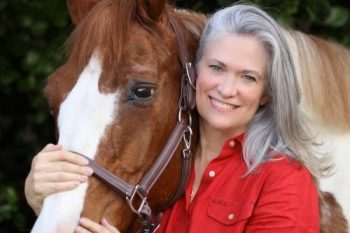Last month Wake Forest Magazine received an email from Jeannetta Craigwell-Graham (’06), an alumna reclaiming her Pro Humanitate spirit.
Craigwell-Graham had just spent two months in Africa, and the memories of her experience gathering information for an indictment against a war criminal persisted, leaving her profoundly changed by Africa and with a need to make sense of how the assignment fits with her personal history.
She wrote to us, “I am a transactional attorney by practice and felt more comfortable negotiating a loan transaction than with traditional forms of advocacy. I saw no connection with what I was currently doing with pursuing justice under mantras of international criminal law. However, I was reminded of the spirit of giving back that I wholeheartedly adopted at Wake Forest and took a big leap in faith and potentially a few steps back in my current career.”
Craigwell-Graham is an associate at Shearman and Sterling LLP, a prominent law firm in New York City that advises on major deals across the globe, most recently the financing of a $3.7 billion Egyptian oil refinery project and the sale in which Warren Buffett’s Berkshire Hathaway next week will acquire all but one of Media General’s newspapers, including the Winston-Salem Journal. With her juris doctor from Boston University, she is living the life of an associate in a blue-chip law firm, busy, running from meeting to meeting and steeped in a corporate culture. But one of the aspects that drew her to the firm was the opportunity for pro bono work. Since 2000 the firm has provided legal assistance to the Office of the Prosecutor of the International Criminal Tribunal for Rwanda. As an international post-conflict organization, this United Nations’-established tribunal has been prosecuting persons responsible for genocide that occurred in Rwanda in 1994.
“I put myself on the list right away,” Craigwell-Graham told me about her reaction when an internal law firm message went out seeking volunteers to assist the ICTR in Arusha, Tazania, for a month in 2012. “Even when I was at Wake I volunteered and always felt like my purpose in life was going to be to help others.”
She and I met at The National restaurant in Manhattan a few weeks ago. Like so many young professionals, she felt the weight of early-career demands. “I felt like I was getting lost,” she told me, “disconnected from the person I was and the person I am now.” As she said in the email, she wanted to share her experience, hoping it “might inspire others in my situation to find ways to reach out to their immediate community and communities very far away.”
Growing up as the child of a psychologist father and a social-worker mother, Craigwell-Graham lived all over the country but finished high school in Goldsboro, N.C. “From a young age, my mom and dad insisted on giving back.” Part of her inspiration was her mother, who arrived as an immigrant from Barbados and worked to seize every opportunity. At Wake Forest Craigwell-Graham became a political science major with a concentration in Asian studies, Japanese language and literature. She traveled to Japan to study and to Moscow on a service-learning trip.
“I was probably what you call a joiner because I did everything,” she said. She headed Project Launch, a Volunteer Service Corps. program, served as a President’s Aide, volunteered in an AIDS hospice program and started a community service program to raise HIV-AIDS awareness in Winston-Salem’s minority communities. “Wake Forest taught me to use your creativity, use your innovation, use your drive, use your skills to do something,” she said.
Africa reminded her of her “joiner” path. Her law firm allowed her to extend the one-month pro bono work to two months. She started in Arusha with the tribunal and traveled to Rwanda with other lawyers for a week to gather statements about a massacre in a church. The accused is a fugitive, but Craigwell-Graham said the material for the indictment will one day be useful: “The idea is they will find him, and he will be transferred to Rwanda.”
Two months on the ground in Africa gave her a taste of what is possible and a reminder of what mattered to her at Wake Forest. She came back to New York, where her colleagues told her, “You seem so relaxed.” She was. “Relationships and people. That’s what matters,” she told me.
She’s energized to direct her energy “doing projects in places I care about, which is Africa.” She hopes to offer support to others like her, who might feel lost hammering away at career-building. She doesn’t want her classmates from 2006 to forget the spirit of Pro Humanitate — “the important lessons that Wake Forest instilled in every student that passed through its gates.” She carries those lessons more tenderly than ever.


